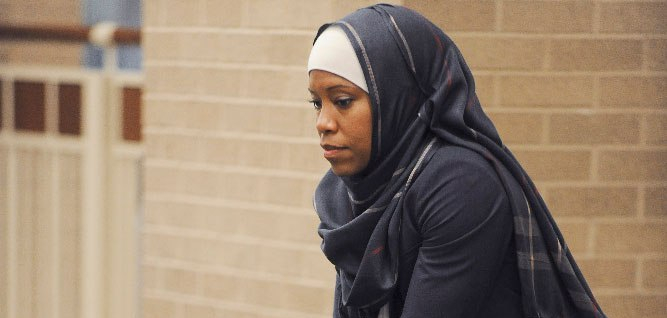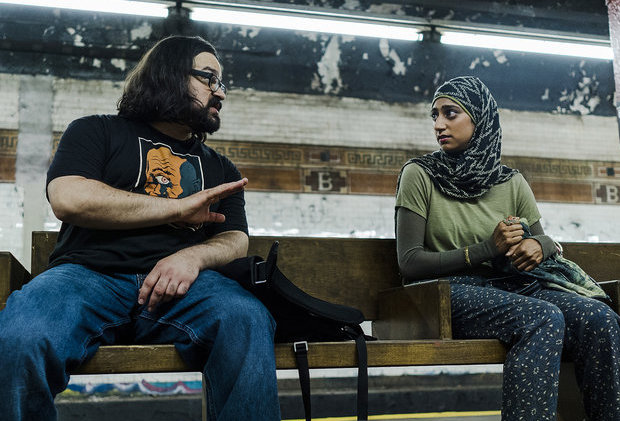While popular films have continued to reinforce the negative stereotypes of Muslims and Arabs that Jack Shaheen has tirelessly documented, a few recent TV shows have attempted to portray Muslim characters beyond the simplistic portrayals as either terrorists or exoticized victims, tropes that are often reinforced on shows like Homeland and 24. There are a few examples of more recent shows that refuse to use Muslim characters as simple plot devices to advance a story about terrorism. Instead, the shows present characters who are identifiably Muslim in their dress, actions and culture, but who have identities that expand beyond their religion. These characters are multifaceted and deal with significant issues, but they also happen to be Muslim. Here are a few recent examples:

The first season of the anthology crime drama American Crime featured the character Aliyah Shadeed, an African-American convert to Islam. Regina King won an Emmy for her portrayal of this strong and independent woman, who is fighting to help her brother after he is arrested for murder. The character of Aliyah is shown throughout the series wearing a headscarf and is portrayed as deeply connected to her religious community. Instead of presenting her religious convictions as problematic and leading to extremism, Islam is seen as a positive force in Aliyah’s life and the prime reason why she is motivated to help her troubled brother.

In the fan favorite, Mr. Robot, a collective of millennial hackers are driven to take down the corrupt corporate and governmental powers. The show was created by Sam Esmail, an Egyptian-American writer and director from a Muslim family. The hacker group, fsociety, includes Shama “Trenton” Biswas, a young Muslim American woman. While Trenton wears a headscarf throughout the series and is shown praying once, her religion is rarely mentioned in the show, except for one scene when a rival goes on a rant about Islam and terrorism. Otherwise, Trenton is a regular member of the hacker collective, and her religion does not inhibit or contribute to her abilities to fulfill the goals of fsociety.

Finally, HBO’s 2016 mini-series, The Night Of, featured a young Muslim and Pakistani American man, Nasir Khan, who is arrested for a gruesome murder. The show is an intimate portrayal of the criminal justice system and how it impacts the lives of Nasir’s hard-working, immigrant parents. While a show such as this one that portrays Muslims as possible criminals might devolve into the typical problematic portrayals of irrational and aggressive Muslim men, this mini-series presents a nuanced portrayal of the struggles of living as a young Muslim man in New York City and trying to meet the high expectations of immigrant parents.
In addition, as was argued in an excellent piece by Lorraine Ali in the LA Times, The Night Of does what is rarely done in TV shows by humanizing a Muslim American family and presenting deeper feelings and experiences beyond the terrorism trope. Ali makes the important point in her article, “Like everyone, Muslims are a bundle of contradictions.” The visual portrayals of Muslim Americans that are desperately needed in mainstream and online media are complex and conflicting images. The least effective response to the terrorist trope would be for the media to only present saccharine and safe Muslims who show their dedication to America by hunting down terrorists.

